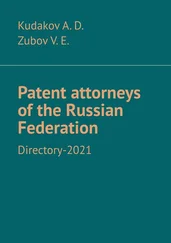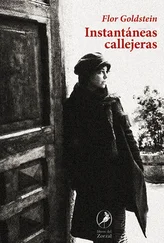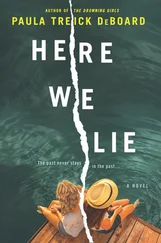Paul Goldstein - A Patent Lie
Здесь есть возможность читать онлайн «Paul Goldstein - A Patent Lie» весь текст электронной книги совершенно бесплатно (целиком полную версию без сокращений). В некоторых случаях можно слушать аудио, скачать через торрент в формате fb2 и присутствует краткое содержание. Жанр: Криминальный детектив, на английском языке. Описание произведения, (предисловие) а так же отзывы посетителей доступны на портале библиотеки ЛибКат.
- Название:A Patent Lie
- Автор:
- Жанр:
- Год:неизвестен
- ISBN:нет данных
- Рейтинг книги:3 / 5. Голосов: 1
-
Избранное:Добавить в избранное
- Отзывы:
-
Ваша оценка:
- 60
- 1
- 2
- 3
- 4
- 5
A Patent Lie: краткое содержание, описание и аннотация
Предлагаем к чтению аннотацию, описание, краткое содержание или предисловие (зависит от того, что написал сам автор книги «A Patent Lie»). Если вы не нашли необходимую информацию о книге — напишите в комментариях, мы постараемся отыскать её.
A Patent Lie — читать онлайн бесплатно полную книгу (весь текст) целиком
Ниже представлен текст книги, разбитый по страницам. Система сохранения места последней прочитанной страницы, позволяет с удобством читать онлайн бесплатно книгу «A Patent Lie», без необходимости каждый раз заново искать на чём Вы остановились. Поставьте закладку, и сможете в любой момент перейти на страницу, на которой закончили чтение.
Интервал:
Закладка:
“Thanks”-Palmieri turned back into the room-“but you'll have to talk to the client about my being at counsel's table.”
“Why?”
“Ask Ed Barnum when you see him.”
As Vaxtek's general counsel, Barnum was the person Seeley was supposed to answer to.
“It doesn't matter what Barnum says. I want you there.”
“Just ask him.” Palmieri started out the door.
“Have you taken care of the pro hac papers?” Because Seeley wasn't a member of the California bar he would have to be admitted, just for this trial, pro hac vice.
“One of the paralegals is taking care of it.”
“Good. If I don't get admitted, you'll be sitting at counsel's table all by yourself.”
For the first time since he met him, Palmieri smiled.
Seeley checked his watch. Vaxtek was in South San Francisco, a half-hour drive from downtown. On his way out, he stopped at Tina's desk. She wasn't there, but had left a message slip for him with Judy Pearsall's address and phone number on it.
Lawyers occupy forty-story office towers to inscribe their presence on the skyline. Scientists stay closer to the ground. Vaxtek's building in South San Francisco was two floors of glass and polished stone, one of dozens of such facades along the commercial boulevard that exited from the freeway. Signs on some of the buildings indicated biotech companies, but others were more mundane-a restaurant-supply firm, a marble-and-granite works, outlet stores for several big retail fashion brands. A temp agency was next door to Vaxtek. For a long stretch of boulevard, the grass was overgrown and clogged with windblown debris, but the lawn in front of Vaxtek's building was neatly trimmed. Low hedgerows separated the parking lot from the street.
Seeley signed in at the security desk and let the receptionist clip a laminated visitor's pass to his lapel. The sparely furnished lobby could have been an airport waiting area with its empty walls and industrial gray carpeting. A slender potted tree guarded two chairs and the carpet gave off a chemical smell as if it had been recently installed. There was no movement in the broad corridor on the other side of the glass double doors leading into the building's interior. After a while, an attractive middle-aged woman in jeans and a turtleneck sweater came through the doors to take Seeley to Leonard's office.
Seeley had heard somewhere that cramped quarters were common in biotech, even for senior executives, and Leonard's office was no larger than Seeley's in the Ellicott Square Building. The desk was a slab of blond wood, part of a combination cabinet-bookshelf. The desktop was empty and the bookshelf nearly so. A beefy man in chinos and polo shirt had propped himself against the desk's outer edge, facing the open door. His bulk partially obscured Leonard, who was sitting behind the desk. There was a tension in the room, as if the two had been arguing.
“Ed Barnum,” Leonard said, introducing them. “Michael Seeley.”
Barnum studied Seeley unhurriedly through aviator glasses and said nothing while Seeley walked around the office. The photographs were mostly of Leonard on vacation, posed against a ski slope or beaming under a baseball cap on a fishing charter. A woman was with him in the photographs. The view out the wall-sized window was of a succession of mud-brown hills, relieved in their monotony only by a bright ribbon of cheap-looking houses.
Leonard started to speak, but Barnum said, “Ray Crosetto sends his regards. So does Sandy Eyring.” The two were well-known trial lawyers, Crosetto from Los Angeles and Eyring from Salt Lake City. Seeley had litigated against them in a couple of long trials before he left his New York firm. This was Barnum's way of letting Seeley know that he had asked around before agreeing to take him on as his new trial counsel.
“They said you're a good lawyer, but that you have an independent streak. I don't know if Leonard impressed on you how important this case is to our company.”
“All my cases are important.”
Barnum moved so that Seeley could no longer see Leonard's eyes. “I don't think you understand. St. Gall already has its product on the market. If we lose this patent the generics will flood the market with knockoffs inside of a year. We've sunk almost half a billion dollars into AV/AS. If you lose this case, we'll never see a dime of it.”
From behind Barnum, Leonard said, “We have other drugs in the pipeline, Mike, but AV/AS is why Wall Street loves us.”
Barnum's large pink face was just inches from Seeley's. “If you lose our case-”
“I'm not planning on losing your case,” Seeley said. “But you're the ones who came looking for me to run this trial. If you changed your mind, now's the time to tell me.”
Barnum paced the small room. He had a sluggish way of responding, and Seeley didn't know if the silence was deliberate or if he was just slow.
Leonard leaned back in his chair. “What Ed's saying is, we're betting the company on this case. If-”
Barnum said, “How does the case look to you?”
“Bob Pearsall did a good job putting it together.”
“That's why I hired him. I don't want any loose ends.”
When Seeley didn't respond, Leonard said, “There aren't any loose ends, are there?”
“There's Lily Warren.”
Annoyance crossed Barnum's face. “Who?”
Leonard said, “The woman who thinks she invented AV/AS.”
“Oh,” Barnum said. “The crackpot.”
It was what Palmieri had said, but Seeley thought it was more likely that the description came from Barnum.
Leonard said, “Why should that be a loose end?”
Seeley said, “Even if she's not on St. Gall's witness list, she could be a problem.”
“There won't be a problem.” Barnum's impassive face moved in front of Seeley so that he again lost eye contact with his brother. “St. Gall already stipulated that Alan Steinhardt invented the vaccine first.”
The information stunned Seeley. When two companies flog their researchers around the clock to come up with a cure for the same disease, it is no accident when they arrive at virtually identical drugs, sometimes within days of each other. Often the margin of difference is so thin that, outside a courtroom, no one can say for sure which team produced the invention first. Alexander Graham Bell's competitor, Elisha Gray, got to the patent office on the same day as Bell, forcing Bell to prove that he invented the telephone first. And, like Bell, whoever reaches the finish line first not only gets the prize they were all competing for-a patent-but, with that patent, the power to stop anyone else, including the runner-up, from producing or selling the invention.
For St. Gall to concede priority was no less than for a country to cede half its territory to a despised foe, and without a shot being fired. There were still important issues to be litigated at trial, among them, whether the discovery of AV/AS was sufficiently novel to deserve a patent. But for St. Gall to stipulate that Vaxtek won the race even before the trial began was startling. It also bothered Seeley that, if he hadn't asked about Warren, Barnum might never have told him about the stipulation.
“Why did they concede priority?”
“Probably,” Barnum said, “because we were first.”
“If you were first, why are they already in the market, and you're just starting phase-three trials?”
“Resources,” Leonard said. “They got a late start, but their money and connections got them through the FDA in half the time we could.”
That still didn't explain St. Gall's stipulation of priority-particularly if they thought one of their employees made the discovery first. “What about Warren?”
“I told you,” Barnum said, “she's a crackpot.”
St. Gall's concession that Steinhardt invented AV/AS first would explain why only two lawyers, Thorpe for St. Gall and Pearsall for Vaxtek, were present when Thorpe deposed Steinhardt. For a witness this important, the deposition room would usually be crowded with lawyers and experts from both sides to advise the two principal lawyers as Thorpe pressed the scientist to pin down the exact moment that he completed the invention.
Читать дальшеИнтервал:
Закладка:
Похожие книги на «A Patent Lie»
Представляем Вашему вниманию похожие книги на «A Patent Lie» списком для выбора. Мы отобрали схожую по названию и смыслу литературу в надежде предоставить читателям больше вариантов отыскать новые, интересные, ещё непрочитанные произведения.
Обсуждение, отзывы о книге «A Patent Lie» и просто собственные мнения читателей. Оставьте ваши комментарии, напишите, что Вы думаете о произведении, его смысле или главных героях. Укажите что конкретно понравилось, а что нет, и почему Вы так считаете.












